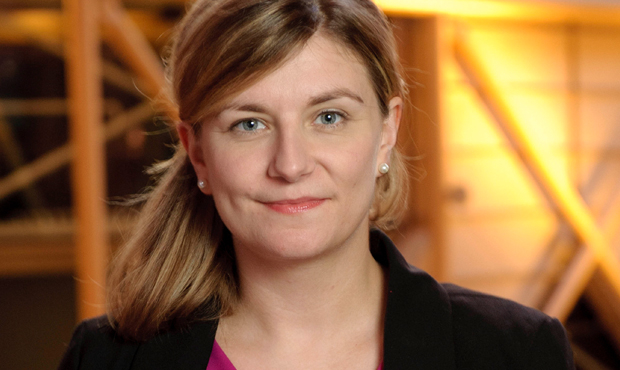5 minutes with: Anna Jordan – 'Theatre feels like home to me'
Playwright Anna Jordan chats to us about winning the Bruntwood Prize, how it changed her career and working at the Royal Exchange

© Joel Chester Fildes
I originally trained as an actor but I had a really tricky time. About three years after graduating, I started writing as it was a great creative outlet. I was lucky to have lots of friends who were actors and LAMDA were kind enough to lend me some space so after I finished my first play I decided to direct a rehearsed reading of it, so it kind of all started from there.
A year or so after writing and directing my first play I thought 'Oh right, this is the side that I want to be on'. I want to be writing and directing and not acting anymore. It's always a bit of a surprise to me that I've been able to let [acting] go so easily after it was what I wanted to do for so long but that change really made sense at the time. It was a really intuitive thing.
I was lucky to be longlisted for the Bruntwood Prize a couple of times before winning it. That in itself was such an amazing thing because quite a lot of people enter, so making it to the shortlist and then winning was such an incredible thing, the chances of it seemed so tiny.
A few months before winning I had this little thought creep into my mind, 'Am I really good enough to do this?' I questioned if it was the right thing to be pursuing in my early thirties and that was quite a frightening thought. So that was one of the most beautiful things about winning the Bruntwood, that you kind of go, 'Ok yeah, I'm in the right game, let's carry on'.
It changes your career completely. Anyone who is switched on to the playwriting world will probably have heard that you have won. It's weird, going from nobody having heard of you to people automatically becoming more interested in your work. It's fantastically exciting but quite difficult to get used to.
The relationships that I forged with the Royal Exchange, especially with Sarah Frankcom and Suzanne Bell have been incredible in terms of developing my work and giving great support and advice. I did some significant redrafting on Yen, it was a big eye opener about the importance of the redrafting process.
It wasn't made official thatYen would transfer to the Royal Court for some time after it finished at the Royal Exchange, although there was the sense that something was going to happen. Ned Bennett [Yen director] and I picked Yen up again towards the end of 2015 and we were quite brave really because the show did very well at the Royal Exchange but there were a couple of things I wasn't quite content with. We worked hard to get it exactly as we wanted. I've been working on this play for a good year and a half and it's been an incredible journey. Theatre feels like home to me and it's a medium I get very excited about.
I think it's really important as a writer to keep a record of ideas and have a system to make notes as it's easy to forget about things, even if it's just an image or a line of text. I have huge files of strange ideas for characters or bits of dialogue and I think that keeps the brain switched on and hungry. It's also important to find a couple of people who you really trust to show your work to. If you show your work to too many people, everyone's going to have different opinions and it's easy, particularly in the early days, to think that other people's opinions are more valid than yours.
I'm currently writing a play for the Central School of Speech and Drama which is really exciting; it's for their MA students. It's about addiction, which is a subject that's really close to my heart, and it's exploring the relationship between an addict and their drug of choice. After I finish this project I'll be writing the first episode of a TV drama with Little Brother productions and I'm just starting a youth theatre – Hackney Showroom Young Actors – so that's quite exciting.












